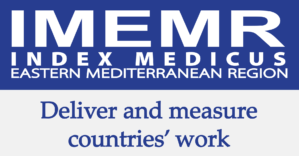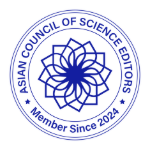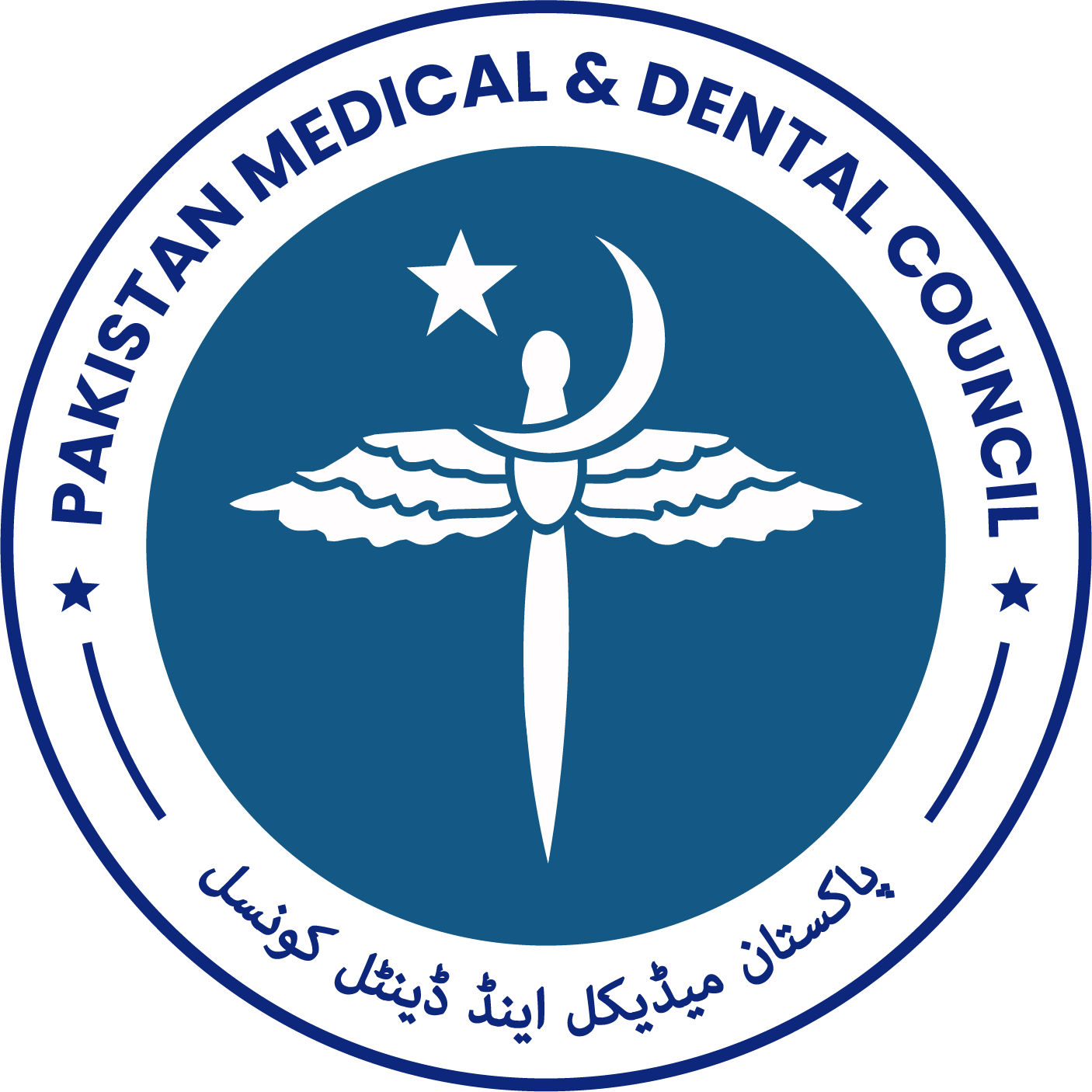Assessment of metacognition levels: A cross-sectional study among dental professionals in Pakistan
DOI:
https://doi.org/10.53685/jshmdc.v6i1.313Keywords:
Metacognition, Dentists, Metacognitive AwarenessAbstract
Background: Metacognition plays a pivotal role in learning, particularly in dentistry, enabling individuals to effectively manage their cognitive processes and identify areas for improvement.
Objective: To evaluate the degree of metacognition among dental professionals at various phases of their careers.
Methods: A cross-sectional study was conducted, using a non-probability sampling technique in private dental hospitals of Lahore from April to June 2024. A total of 320 dental professionals consented to participate. Data collection involved a semi-structured questionnaire and the Metacognitive Assessment Inventory (MAI), comprising two overarching domains – knowledge about cognition and regulation of cognition, each with three and five subdomains, respectively. Data were analysed using SPSS version 25. Descriptive statistics were computed, and one-way ANOVA and post hoc analysis were used to evaluate group differences. A p-value of <0.05 was considered statistically significant.
Results: Consultants demonstrated significantly higher total cognitive knowledge scores than house officers (16.4 versus 8.5, respectively). This trend extended across subdomains, including procedural, conditional, and declarative knowledge. Similarly, consultants outperformed other participants in cognitive regulation (32.9 versus 17.6, respectively), particularly in planning and evaluation. Subdomains such as information management, communication, and debugging strategies were significantly higher in consultants than in graduate dentists, house officers, and postgraduates. General dentists had the highest cognition score among all the others (p<0.05).
Conclusion: The metacognition level of consultants and general dentists was highest among dental professionals. It underscores the importance of fostering self-learning among dental professionals, particularly through developing their metacognitive abilities.
References
Rita B, McKee A. Metacognition in oral health education: A pedagogy worthy of further exploration. Med Teach. 2024; 46(7): 911-918. DOI: https://doi.org/10.1080/0142159X.2023.2287399
Abdelrahman RM. Metacognitive awareness and academic motivation and their impact on academic achievement of Ajman University students. Heliyon. 2020; 6(9): e04192. DOI: https://doi.org/10.1016/j.heliyon.2020.e04192
Versteeg M, Bressers G, Wijnen-Meijer M, Ommering BWC, De Beaufort AJ, Steendijk P. What were you thinking? Medical students’ metacognition and perceptions of self-regulated learning. Teach Learn Med. 2021; 33(5): 473–482. DOI: https://doi.org/10.1080/10401334.2021.1889559
Norman E, Pfuhl G, Sæle RG, Svartdal F, Låg T, Dahl TI. Metacognition in psychology. Rev Gen Psychol. 2019; 23(4): 403–424. DOI: https://doi.org/10.1177/1089268019883821
Teng MF. The role of metacognitive knowledge and regulation in mediating university EFL learners’ writing performance. Innov Lang Learn Tea. 2019; 14(5): 436–450. DOI: https://doi.org/10.1080/17501229.2019.1615493
Tatić M, Nešović P, Simonović M. Comparison of metacognitive awareness of medical students during two years follow up. Med Podml. 2019; 70(2): 43–47. DOI: https://doi.org/10.5937/mp70-17909
Fox K, Jarad F, Baaij A. The use of coaching to enhance students' learning, self-efficacy and performance in endodontics. Int Endod J. 2025 Apr 19. DOI: https://doi.org/10.1111/iej.14241
Carvalho AR, Santos C. Developing peer mentors’ collaborative and metacognitive skills with a technology-enhanced peer learning program. Comput Edu Open. 2022; 3: 100070. DOI: https://doi.org/10.1016/j.caeo.2021.100070
Ho, YR., Chen, BY. & Li, CM. Thinking more wisely: using the Socratic method to develop critical thinking skills amongst healthcare students. BMC Med Educ. 2023; 23(1): 173. DOI: https://doi.org/10.1186/s12909-023-04134-2
Kosior, Ken; Wall, Tracy; Ferrero, Sarah. The role of metacognition in teaching clinical reasoning: Theory to practice. Health Prof Educ. 2019; 2(2): 108-114. DOI: https://doi.org/10.4103/EHP.EHP_14_19
Feller L, Lemmer J, Nemutandani MS, Ballyram R, Khammissa RAG. Judgment and decision-making in clinical dentistry. J Int Med Res. 2020; 48(11): 300060520972877. DOI: https://doi.org/10.1177/0300060520972877
Lins ME, Pamplona L, Lins AE, Lyra K. Metacognitive attitude for decision making at a university hospital. Int Trans Oper. 2021; 30(3): 1366–1386. DOI: https://doi.org/10.1111/itor.12975
Manji SN, Imtiaz M, Anwar MA, Mehmood K, Noor M, Ahmad S, et al. Correlation of Cultural Intelligence and Communication Skills of Pre and Post Covid Cohort Dental House Officers at Tertiary Care Hospital in Pakistan. Pakistan J Med Health Sci. 2023; 17(06): 294–297. DOI: https://doi.org/10.53350/pjmhs2023176294
Wang CY, Chen S, Huang MY. Exploring medical students’ metacognitive and regulatory dimensions of diagnostic problem solving. Med Educ Online. 2023; 28(1): 2210804. DOI: https://doi.org/10.1080/10872981.2023.2210804
Schraw G, Dennison R. Assessing metacognitive awareness. Contempt Educ Psychol. 1994; 19: 460–475. DOI: https://doi.org/10.1006/ceps.1994.1033
Friedlander LT, Wallace W, Broadbent JM, Hanlin SM, Lyons KM, Cannon RD, et al. Preparedness and competency of New Zealand graduates for general dental practice - perceptions from the workforce. Aust Dent J. 2024; 69(1): 29-39. DOI: https://doi.org/10.1111/adj.12981
Atreya A, Nepal S, Acharya J. Self-rating on self-directed learning: A cross- sectional survey on a cohort of medical undergraduates from Nepal. J Lumbini Med Coll. 2020; 8(1): 43–47. DOI: https://doi.org/10.22502/jlmc.v8i1.319
Dadgar Z, Fallah V, Taheri F. Mediating role of emotional well-being in the effect of metacognitive learning and self-directed learning on the level of e-learning in the managers of universities. J Nurs Midwifery Sci. 2020; 7(2): 112. DOI: https://doi.org/10.4103/JNMS.JNMS_56_19
Katyal S, Fleming SM. The future of metacognition research: Balancing construct breadth with measurement rigor. Cortex. 2024; 171: 223-234. DOI: https://doi.org/10.1016/j.cortex.2023.11.002
Hassan S, Venkateswaran P, Agarwal P, Sulaiman AR, Burud IAS. Metacognitive awareness and its relation to students’ academic achievement: Time to ponder its implication in delivery of curriculum. Edu Med J. 2023; 5(4): 53–65. DOI: https://doi.org/10.21203/rs.3.rs-1266966/v1
Colbert CY, Graham L, West C, White BA, Arroliga AC, Myers JD, et al. Teaching metacognitive skills: helping your physician trainees in the quest to 'know what they don't know'. Am J Med. 2015; 128(3): 318-324. DOI: https://doi.org/10.1016/j.amjmed.2014.11.001
Benfaida S, Moussaoui H, Marragh H, Mahmoudi K, Hamza M, Andoh A. Metacognitive, management and affective strategies of dental students at the beginning and the end of the university curriculum. EJ-Edu. 2023; 4(6): 58–62. DOI: https://doi.org/10.24018/ejedu.2023.4.6.739
Sawant N, Parkar S, Sharma A. Assessing metacognitive abilities of postgraduate medical students. Ann Indian Psych. 2018; 2(1): 23. DOI: https://doi.org/10.4103/aip.aip_46_17
Greengrass CJ, Mamalchi SA, Kozmenko V. Transitioning from specialisation to collaboration: interprofessional clinical simulation, metacognition and the phenomenon of convergence. J Interprof Care. 2024; 38(6): 1062–1071. DOI: https://doi.org/10.1080/13561820.2024.2405977
Downloads
Published
How to Cite
Issue
Section
License
Copyright (c) 2025 Tayyaba Nayab, Kaynat Jahangir, Ammara Chaudhry, Annam Imtiaz, Tooba Saeed, Malik Adeel Anwar

This work is licensed under a Creative Commons Attribution-NonCommercial 4.0 International License.
You are free to:
- Share — copy and redistribute the material in any medium or format
- Adapt — remix, transform, and build upon the material
- The licensor cannot revoke these freedoms as long as you follow the license terms.
Under the following terms:
-
Attribution — You must give appropriate credit, provide a link to the license, and indicate if changes were made. You may do so in any reasonable manner, but not in any way that suggests the licensor endorses you or your use.
-
Non Commercial — You may not use the material for commercial purposes.
-
No additional restrictions — You may not apply legal terms or technological measures that legally restrict others from doing anything the license permits.





















